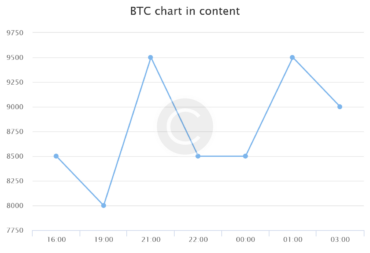
Debates on their environmental impact, scalability, and sustainability have become increasingly more common as the digital currency landscape continues to shift and evolve. Recently, a video released by the founder of Mollars, a new digital currency, fired up a new wave of debate and critique from onlookers-particularly on issues that Bitcoin won’t disclose. We review here some of the key points from the video and what that would mean for the cryptocurrency market.
The Perspective of the Mollars Founder
In the video, the founder of Mollars expressed concerns about Bitcoin’s environmental footprint and energy consumption. He argued that Bitcoin mining, which relies on energy-intensive processes, contributes to carbon emissions and environmental degradation. Moreover, he highlighted the growing disparity between the energy consumption of Bitcoin mining operations and the minimal tangible benefits they provide to society.
The founder of Mollars also emphasized the need for greater transparency and accountability within the cryptocurrency industry, particularly regarding the environmental impact of blockchain technologies. He called for a reevaluation of the current mining practices and a shift towards more sustainable and eco-friendly alternatives.
Criticism of the Hidden Costs of Bitcoin
This video then caused a split in the cryptocurrency community afterwards, as it echoed what many others felt and also had their own complaints with the founder of the Mollars. Most critics against the hidden costs of Bitcoin identify the consensus mechanism of Proof of Work-a method requiring complex mathematical puzzles to be solved by miners in order to validate every transaction or secure the network.
While PoW has driven effectiveness in ensuring security and integrity within the Bitcoin blockchain, it does so at a great environmental cost. The energy usage of the processes within bitcoin mining has been pegged to be comparable to the consumption by small countries, raising several questions over long-term viability with regards to ecological impact.
Besides that, it has been criticized for the extremely inefficient and non-scalable nature of mining in Bitcoin. This has further been negated by the constant growth of the Bitcoin network, in turn increasing energy use, adding to its already high environmental footprint and carbon emissions.
Implications for the Cryptocurrency Industry
The critiques of Bitcoin’s hidden costs, apparently, point to more innovation and sustainability that the industry needs. With increased environmental awareness, the pressure is rising for cryptocurrency projects to introduce greener methods of consensus and reduce carbon footprint emissions.
Such alternative cryptocurrencies as Ethereum 2.0, Cardano, and Mollars try to take in a different direction by implementing different consensus mechanisms, like Proof of Stake, which would require much less energy use compared to PoW. These eco-friendly alternatives continue to present a promising solution to the environmental challenges presented by mainstream blockchain technologies.
Furthermore, critiques of the hidden costs of Bitcoin raise the relevance of transparency and accountability for the cryptocurrency industry. As consumers and investors are becoming increasingly environmentally sensitive, they demand greater access to information about the environmental impact of blockchain projects and all the actions involved in its mitigation.
Conclusion
A video posted by the founder of Mollars has stirred a very important conversation in terms of the hidden costs of Bitcoin and, for that matter, ecological concerns involving blockchain technologies. As the crypto space keeps evolving, there’s increased awareness regarding needs toward sustainability, innovation, and accountability.
While Bitcoin’s energy-intensive mining has surely raised many eyebrows with respect to its ecological footprint, it has also catalyzed very important discussions concerning the development of alternative consensus mechanisms and eco-friendly solutions. Meeting these challenges and embracing sustainability will open up ways for the cryptocurrency industry to move toward a more equable, resilient, and ecologically conscious future.





